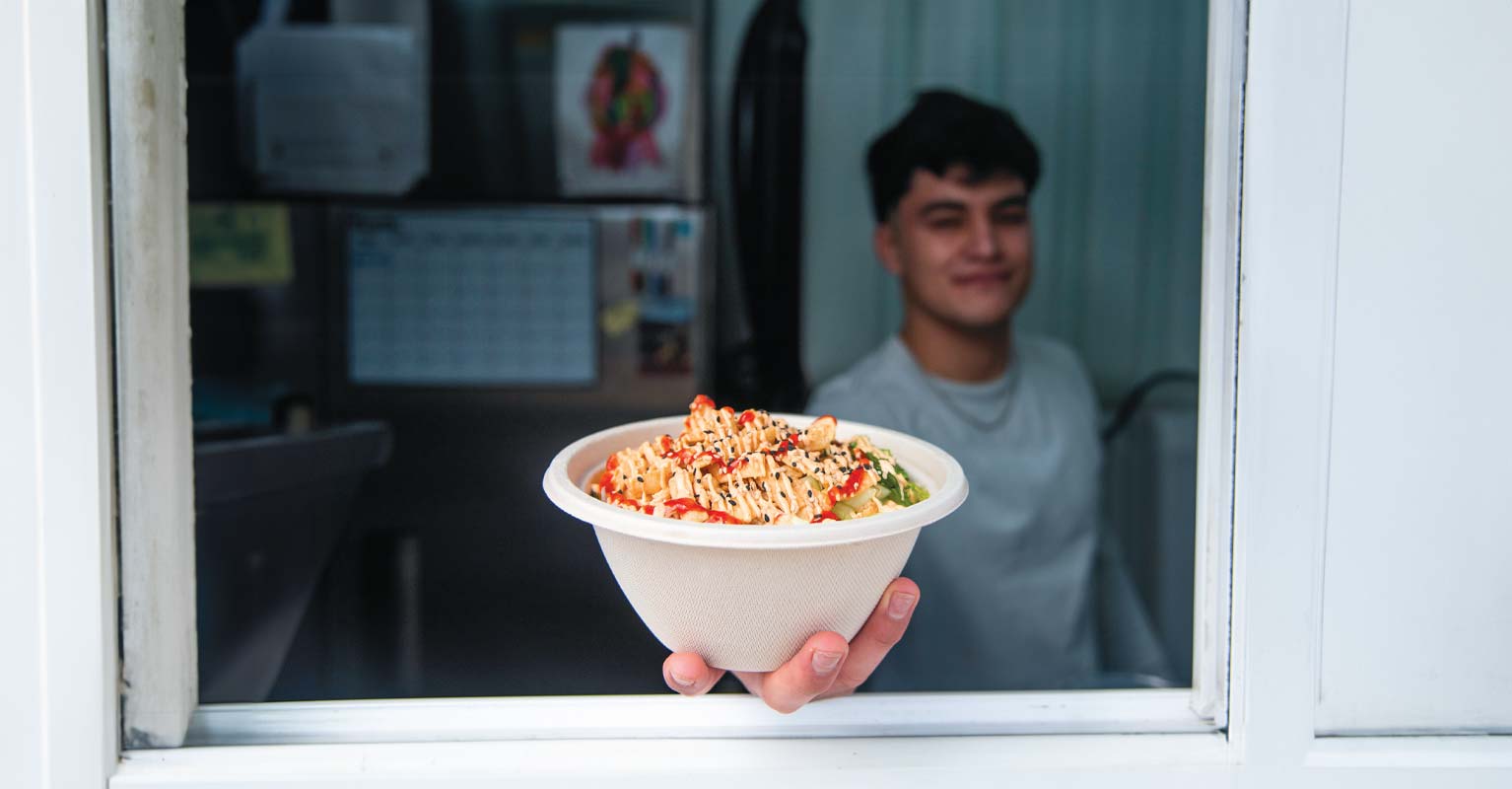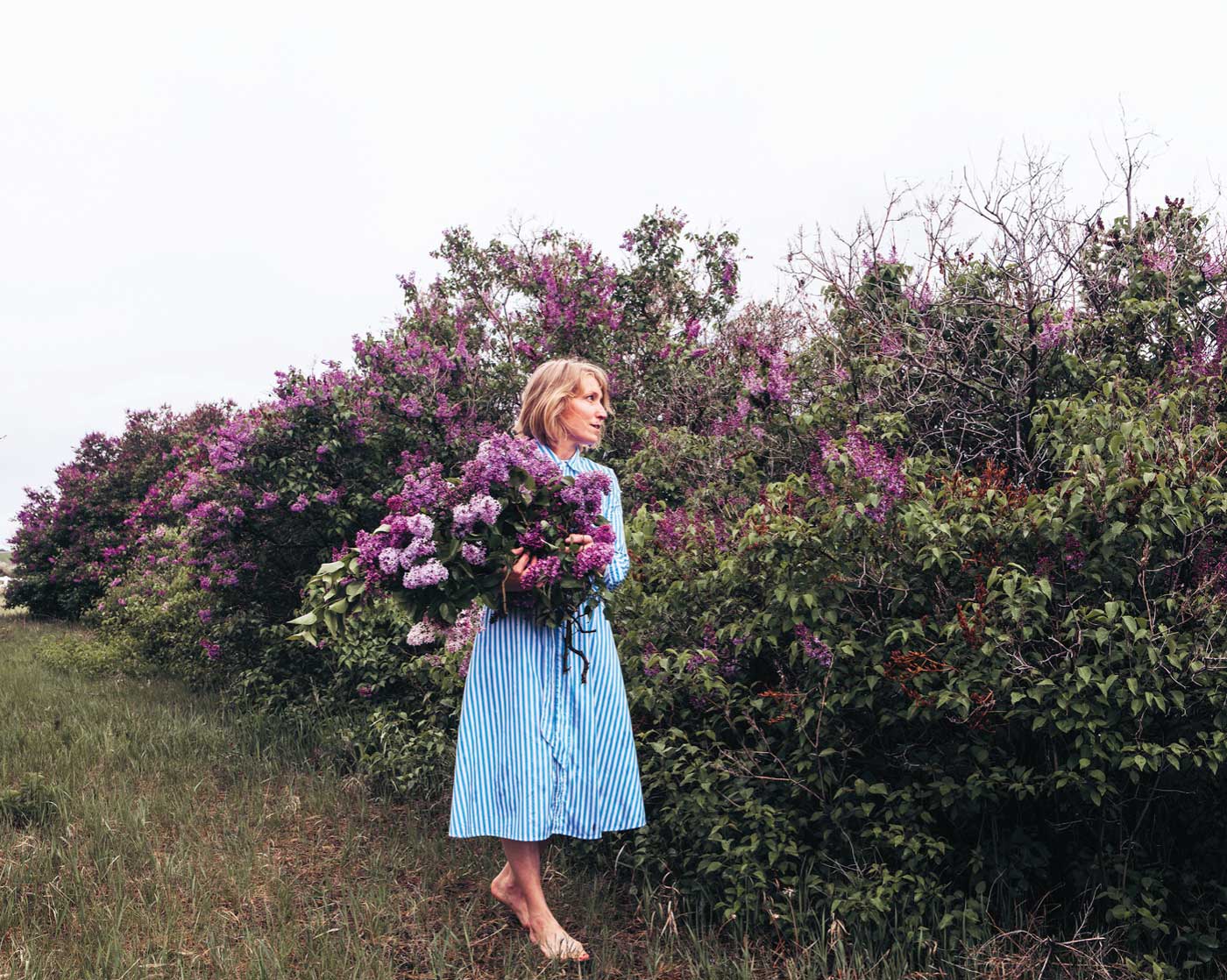For Eduardo Garcia, community is an integral part of preparing food. This ethos motivates his participation in events across southwest Montana. Photo courtesy of Montana Mex.
How Eduardo Garcia and the Montana Mex Team Co-create Community
If you’ve heard of Chef Eduardo Garcia, chances are it’s in the context of his miraculous recovery after being electrocuted with 2,400 volts from a buried electrical line while hunting near his hometown in Paradise Valley in 2011. With nine exit wounds throughout his body, he was airlifted to Salt Lake City and spent 50 days in the ICU, enduring more than 21 surgeries, including the amputation of his left hand as well as the removal of four ribs and portions of his torso and skull. He was also diagnosed with testicular cancer while in the hospital, which required chemotherapy in the midst of healing from his accident.
That story—an unbelievable testament to the miracle of life—has been told. It’s been told through Eduardo’s award-winning documentary Charged and the “Hungry Life” video series, and continues with the new Magnolia Network TV show “Big Sky Kitchen with Eduardo Garcia.” It has also been told through speaking engagements, podcasts, and his ambassadorship with the Challenged Athletes Foundation, a nonprofit that supports people with physical challenges in their pursuit of active lifestyles.
Today, I venture to Eduardo’s home in Bozeman to meet him and his sister, Indra Fanuzzi, with a different story in mind: the evolution of Montana Mex, their 12-year-old, family-owned food company that currently produces allergy-friendly condiments including ketchup; barbecue and sweet-and-spicy habanero sauces; jalapeño, sweet, and mild chile seasonings; avocado oil; and cooking kits.
“You’re not going to eat condiments and spices by themselves. They need good foods, good people, and good intentions.” —Indra Fanuzzi
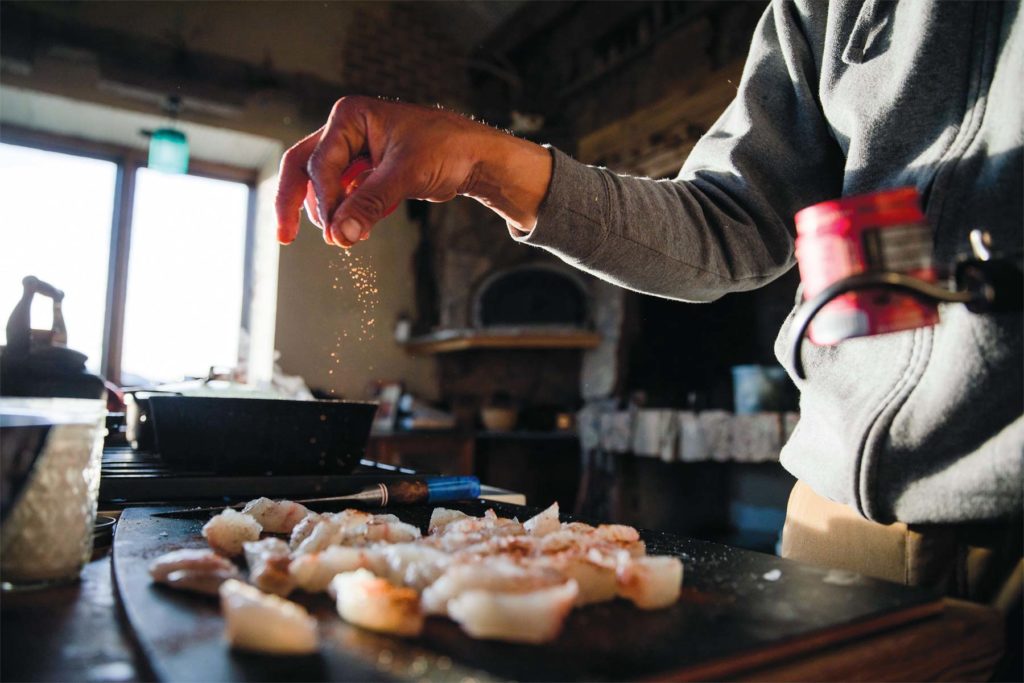
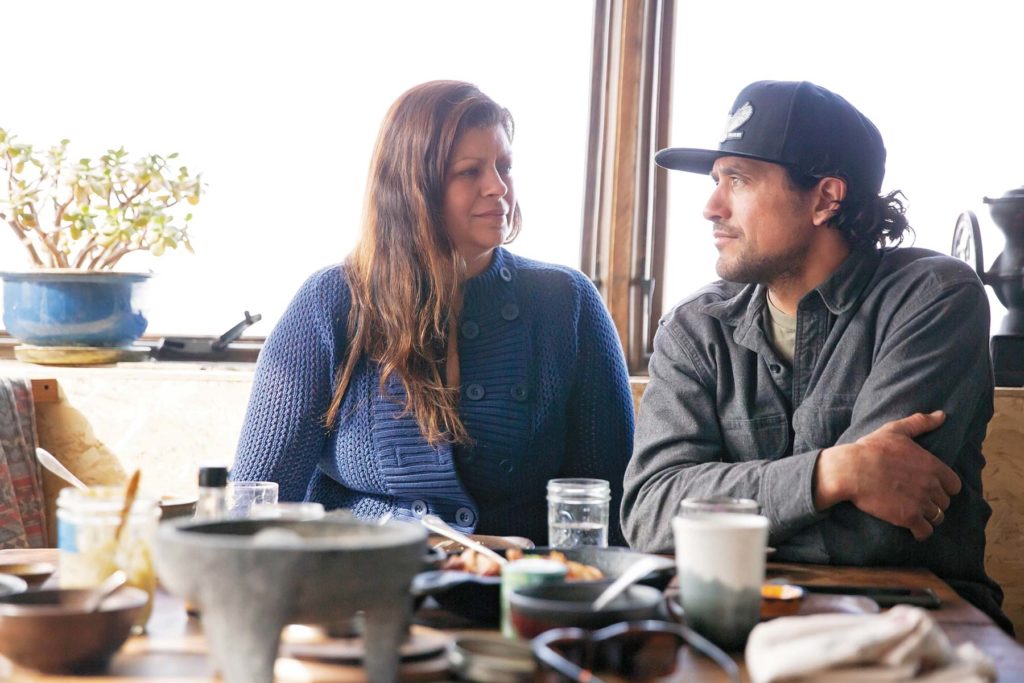
WHERE THE MAGIC HAPPENS
I walk past the property’s lush one-acre food forest, taking in the view of the Madison Range, the ducks waddling about, the greenhouse and chicken trailer in the distance. Upon entering Eduardo’s home, I’m greeted by Veda, a 14-year-old Staffordshire-collie mix, who slowly makes her way from the couch to my feet for a welcome pet.
In the kitchen, plaster contrasts with exposed brick walls and vintage license plates decorate wooden drawers next to a custom wood-fired oven and six-burner range. Rolling pins of various colors stand vertically between iron railings, and an 18-shelf unit displays cast-iron pots, pans, and griddles, as well as dozens of mason jars filled with herbs, spices, flours, and grains. In the midst of it all sits an altar, honoring Eduardo and Indra’s father with a memorial photo and a sign that hangs under a single exposed lightbulb: “If I’m missing, I’ve gone fishing.”
This space has been Eduardo’s personal home kitchen and the test kitchen for Montana Mex over the years, as the company has evolved from slinging salsas at Livingston and Bozeman farmers markets to distributing products nationwide. In a house built with reclaimed materials, every piece of furniture holds stories that stand alone, yet when put together they become part of the collective beauty of a whole new creation; in this case, the creation is a home, a new recipe, or even a new idea or perspective on life.
Regeneration weaves into every fiber of Eduardo and Indra’s being, beginning with the philosophy behind Montana Mex and its products. “Culturing [or fermentation] is the act of taking an inoculant—a life force—putting it into a suggested world, and watching that world transform,” says Indra, owner of The Astrea Group, the consulting agency that handles the executive management and high-level supply chain for Montana Mex. “The inoculant doesn’t change the nature of the things that are there; it invites the life-force to be activated in those things. We see our products as the inoculants: You’re not going to eat condiments and spices by themselves. They need good foods, good people, and good intentions in order to help co-create new life.”
Eduardo, the CEO of Montana Mex, expands the picture: “Just like in nature, where all the animals and plants have their unique roles in the symbiosis of life, we believe that our employees and contractors bring their unique gifts to Montana Mex, and that’s what creates the magic,” he says. “I have the kind of energy that can work consistent 14-hour days, but someone else may contribute their passion in a quarter of that time and still be an integral part of the whole. We want to ignite the same in our customers—what ingredients, so to speak, do they bring to the world and what can be created when they join with others?”
“Just like in nature, where all the animals and plants have their unique roles in the symbiosis of life, we believe that our employees and contractors bring their unique gifts to Montana Mex, and that’s what creates the magic.” —Eduardo Garcia
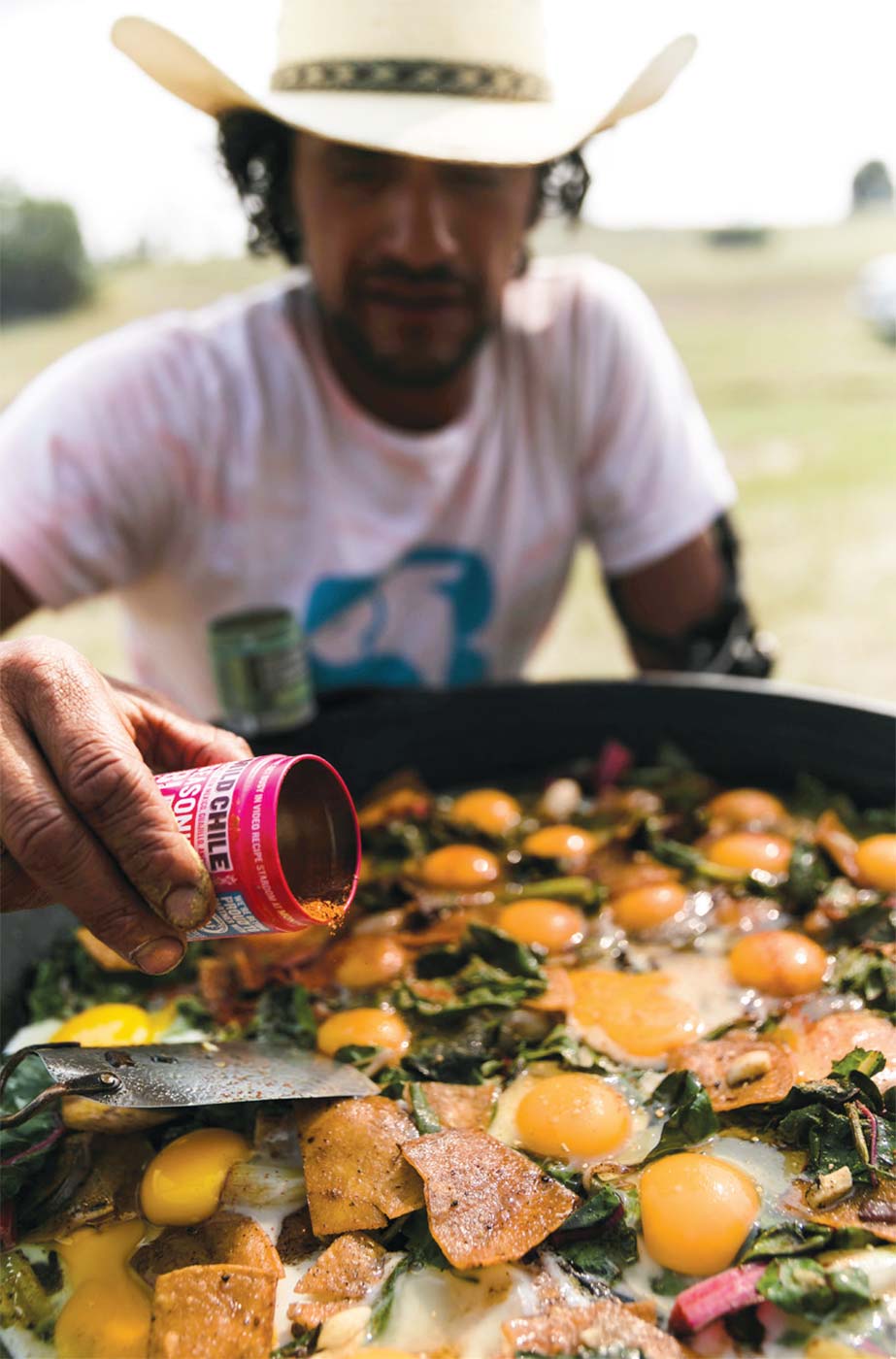
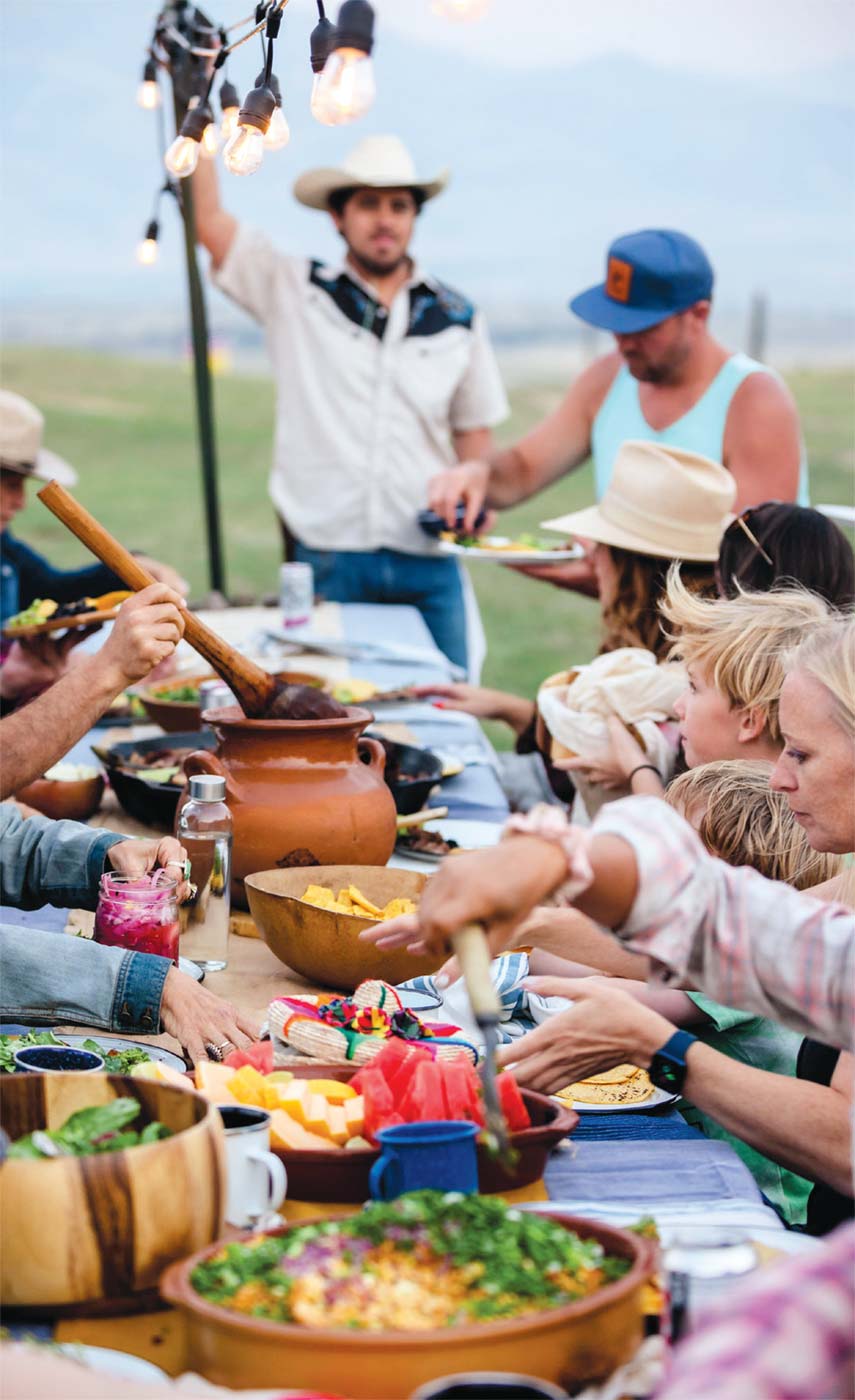
HUMBLE BEGINNINGS
Eduardo, Indra, and their brother, Eugenio, were raised in a spiritual community near Gardiner by their mother, Kathie, an eclectic New Yorker of Jewish-Russian descent. They grew up tending organic community gardens, learning multicultural philosophy and ways of living, and having access to some of Montana’s most pristine wilderness. Their father, Manuel, stayed in Mexico after they were born and had very little contact with the children for 13 years, until the 1990s when he moved to Montana to rekindle his relationship with Kathie and get to know his kids.
“My dad was raised in the jungles of Yucatan, Mexico, as a fisherman and lobster diver, and because of that, he had a deep, trusting relationship with Mother Nature,” Eduardo says. “After a day on the water, fishermen would hop over to each other’s boats. They’d trade, they’d share what they had, and a meal would form out of each person’s unique contributions.”
As Manuel acclimated to the mountains, his kids had the opportunity to connect more deeply with their Mexican roots and the Garcia family heritage. “Dad was a fantastic cook, and he met hunters interested in trading their game meat for his homemade tamales and salsa,” Eduardo says. “He started sharing his food creations with co-workers at his day job, and that same symbiosis came alive again here in Montana. My father loved to eat, but even more than that, he loved to watch other people eat and be a part of that feeding process.”
His side hustle grew, and Kathie printed business cards that read, “Montana Mex.”
“Everyone wanted Dad to package and sell his salsa on a larger scale, but it remained an informal operation, a passion that he shared because it was natural to him,” Eduardo says. Around this time, Eduardo was exploring his own interest in cooking, beginning with jobs at Chico Hot Springs and Uncle Louie’s in Livingston. At 18, he moved to Seattle to attend culinary school at The Art Institute, where he graduated and landed a job as a yacht chef—a profession he pursued for 10 years, serving guests on multi-million-dollar yachts and visiting faraway places from Saint-Tropez to the South Pacific.
Profitable and exciting as it was (and it was, especially in his twenties), yacht life eventually felt stagnant, with Eduardo spending months away from home, hyper focused on cranking out meal after meal in a small, isolated galley. He ached to return to the wide-open mountains of Montana, to physically reconnect with his family, and be grounded in community. Eduardo also realized that his passion wasn’t just filling people’s bellies—it was seeing the qualitative effect of his love and care, having reverence for the land and people that produce food, and hearing the stories behind ingredients and preparation methods.
“I was always thrilled to get off the boat and talk to people: the Rastafarian who sold produce but also offered you a cheeky spliff,” he says. “Or the abuelitas who joked with me in Spanish in the open markets. These human interactions fed my soul, and I was pulled to be a part of the experience outside of just the meal placed in front of a guest.”
While Eduardo looked for a career change, his twin brother, Eugenio, was working his way up at Whole Foods, learning the grocery market and frustrated that none of the salsas his store carried were as delicious as their family recipes. “Eugenio was constantly pressing Eduardo to help him carry on the Montana Mex salsa business,” Indra says. “Meanwhile, my son was developing severe allergies to a lot of ingredients. He kept having reactions, and we didn’t know what would set it off. Food—which had always been a love language in our family—became somewhat of a scary endeavor.”
One day in 2009 at Indra’s kitchen table, the plan came together to create a company dedicated to delicious products with simple, straightforward ingredients that the Garcia family would feel confident serving to their closest loved ones. “Eduardo was to be the chef and face of the brand, marketing the products through TV and events,” Indra remembers.
“Eugenio, the CEO, since he had a background in economics and knew food retail; Jenny Jane, Eduardo’s girlfriend at the time, was to be marketing and creative. And Eduardo asked me to get involved in operations.”
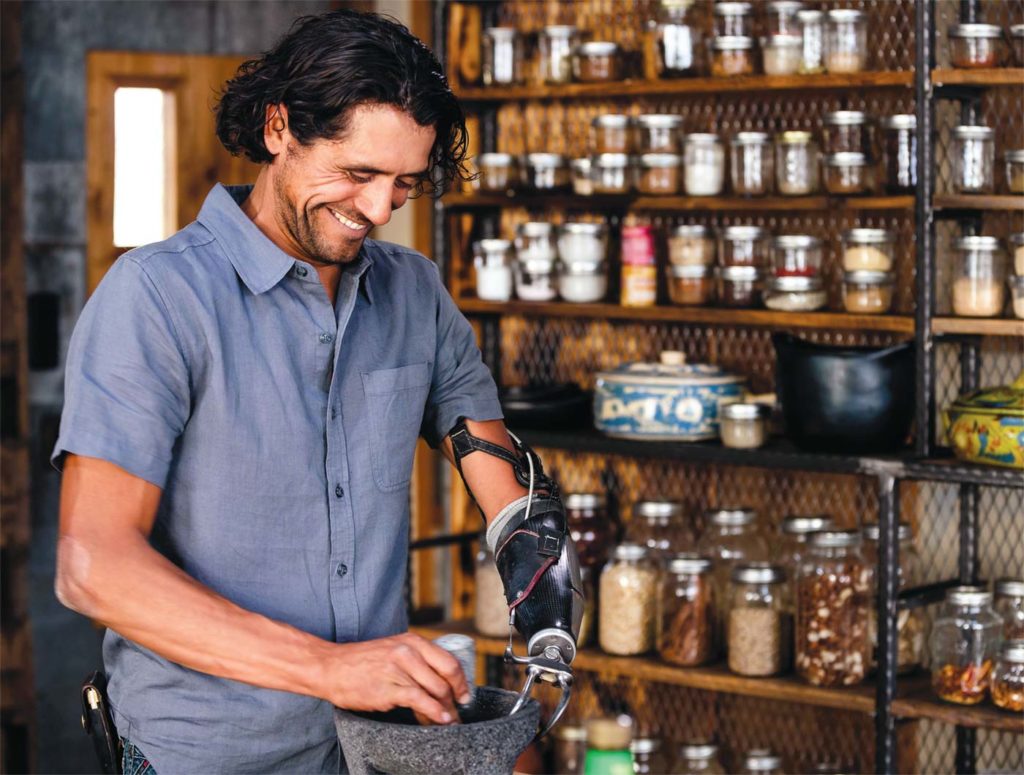
A DECADE OF EVOLUTION
The team spent the first few years developing and testing salsa and guacamole recipes and selling at farmers markets, working strictly for sweat equity. “I’ll always remember our first market in Livingston,” Indra says. “Both of my kids had crazy seasonal allergies, and they were miserable. But we schlepped all the product to the venue and sold out within an hour. The community support was incredible.”
Eduardo quit yacht cheffing and moved back to Montana to commit to the business full time—then his accident landed him on the healing path for two years, with Jenny Jane by his side as his primary caregiver. Along with Eduardo’s personal recovery, many business shifts took place over the following decade: Eugenio moved from CEO to silent co-owner. Indra took several years off to care for their father on hospice and study business development and enterprise architecture. The company moved its warehouse to Texas and pursued large-scale national distribution. They scaled their sourcing, switched suppliers, pitched their products, and found investors. They had highs and lows along the journey, and eventually learned that while a large-scale distribution model held opportunity for revenue growth, it also meant that the company would no longer be in touch with where the products were sold and whom they were sold to. Plus, the capital needed to make this route successful was out of reach and too far disconnected from their original mission of supplying clean products and inspiration to their community.
In 2019, Indra reunited with her brother at Montana Mex, now more equipped than ever to help the company thrive, and the duo has been leaning into the evolution and rebirth process—taking time to clarify their core values and root themselves in the strong business foundation they’ve learned the hard way. “We realized that the product is not the purpose for us; the passion and the people are the purpose,” says Eduardo. “That might not give us the biggest company, but our definition of success spans beyond profits.”
Success, to Eduardo and Indra, is partnering with nearby companies that align with their ethos, like Bonner, Montana–based Big Sky Fulfillment, Montana Mex’s current warehouse and distribution partner. Success is also being fully transparent about all of their ingredients, so customers can eat without fear; paying employees and contractors fairly and giving them voice in company matters as they co-create Montana Mex together; and continuing to bring together the best ingredients and staying mindful in sourcing, quality, and packaging.
Success also means prioritizing the Montana community that helped propel the company in its early days. After the flooding in Paradise Valley this year, the Montana Mex team decided to donate 30 percent of proceeds from the sales of cooking kits—through October 31—to the local relief efforts, and the team is collaborating on events in Bozeman, Livingston, and the surrounding valleys. “We did a Father’s Day event at Schnee’s this year, giving out hugs and tacos to dads and families on Main Street [in Bozeman],” Eduardo says. “That was so meaningful, especially since we lost our dad just a few years ago. Events at Eagle Mount, MSU, hunting camps for kids—these are the intimate spaces where I can reach people and meld my passions for flavor, stories, and creating well-rounded food experiences.”
Currently, you can find Montana Mex sauces and seasonings locally at Town & Country Foods, Kenyon Noble, Ace Hardware, and Schnee’s. “The call to action is to enjoy our goodies where you find them,” Indra says, adding that people can encourage their favorite stores to reach out to Montana Mex and carry their products. People can also purchase directly from Montana Mex online.
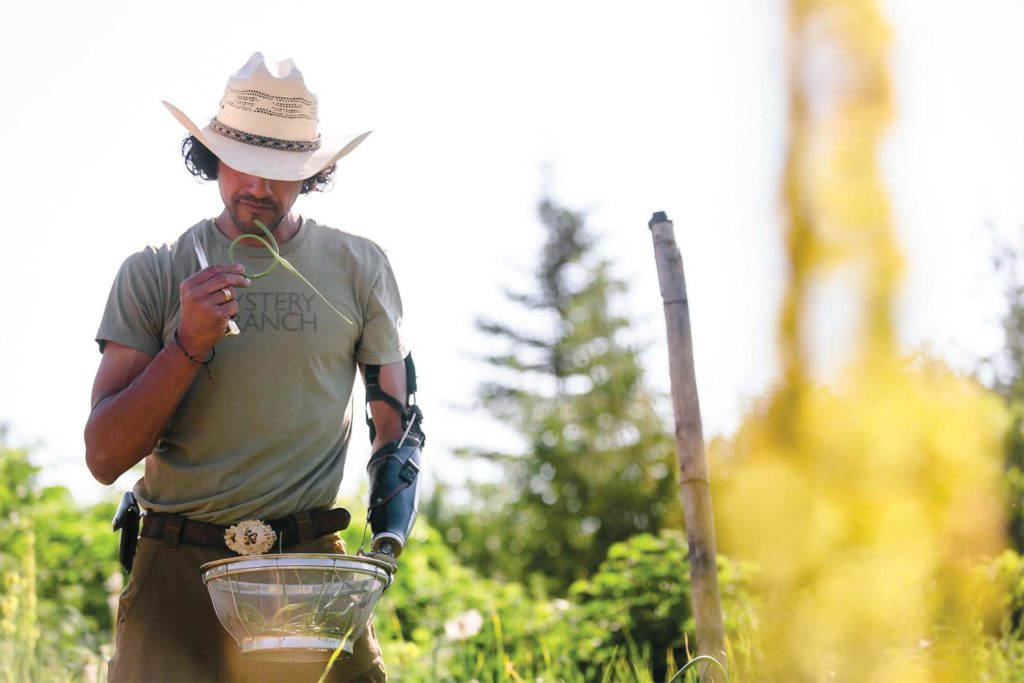
MONTANA MEX 2.0
The focus on local doesn’t mean Eduardo will stop traveling and pursuing large-scale projects. All of his creative pursuits feed into one another, different outlets allowing for parts of himself to be expressed and to encourage that same radical expression in others.
“When you grow up as a Latino in Gardiner, it can be tough to figure out how to balance the natural longing to expand—which sometimes means leaving your hometown— with the primal necessity of community and place-based belonging,” he says. “I feel at home in places where my ancestors lived, but being back in Montana, a big focus is on how to give my gifts here; how to be a part of this local food scene, while also nurturing my out-of-the-box, anything-is-possible mind-set. Th ere’s a lot of space for creative collaboration in this growing community, and I hope Montana Mex can play a part in that.”
Eduardo looks across the table at his sister as we finish the snacks he’s prepared: shredded venison with jalapeño cream sauce and purple chive blossoms; guacamole; jicama, mint, and grapefruit salad with chile seasoning; plum chutney; and cheese charcuterie. “It feels like we’ve just arrived, in a way,” he says, Indra nodding. “The first 10 years were spent experimenting and learning by doing. Now, we’re clear on how this business can be a vehicle to inspire more passion and beauty in the world.”
After all they’ve been through, Eduardo and Indra recognize that the path to the current moment couldn’t have happened any other way—not without Eduardo’s accident, not without the sold-out farmers markets and community support, not without the partnership shifts, not without every trial and tribulation along the way. Summoning the same trust in life that their father embodied, Indra and Eduardo actively choose to treat each day as an opportunity to empower others, to collaborate, to share, to love.
“If my dad had any advice for us now, it would be, ‘Con amor todo se puede’—with love, all is possible,” Eduardo says, as his eyes fill with tears. “Our dad was so aware of his role as another living being in a sea of living beings, and I try my best to carry that sentiment into this business and all of my relationships.”


